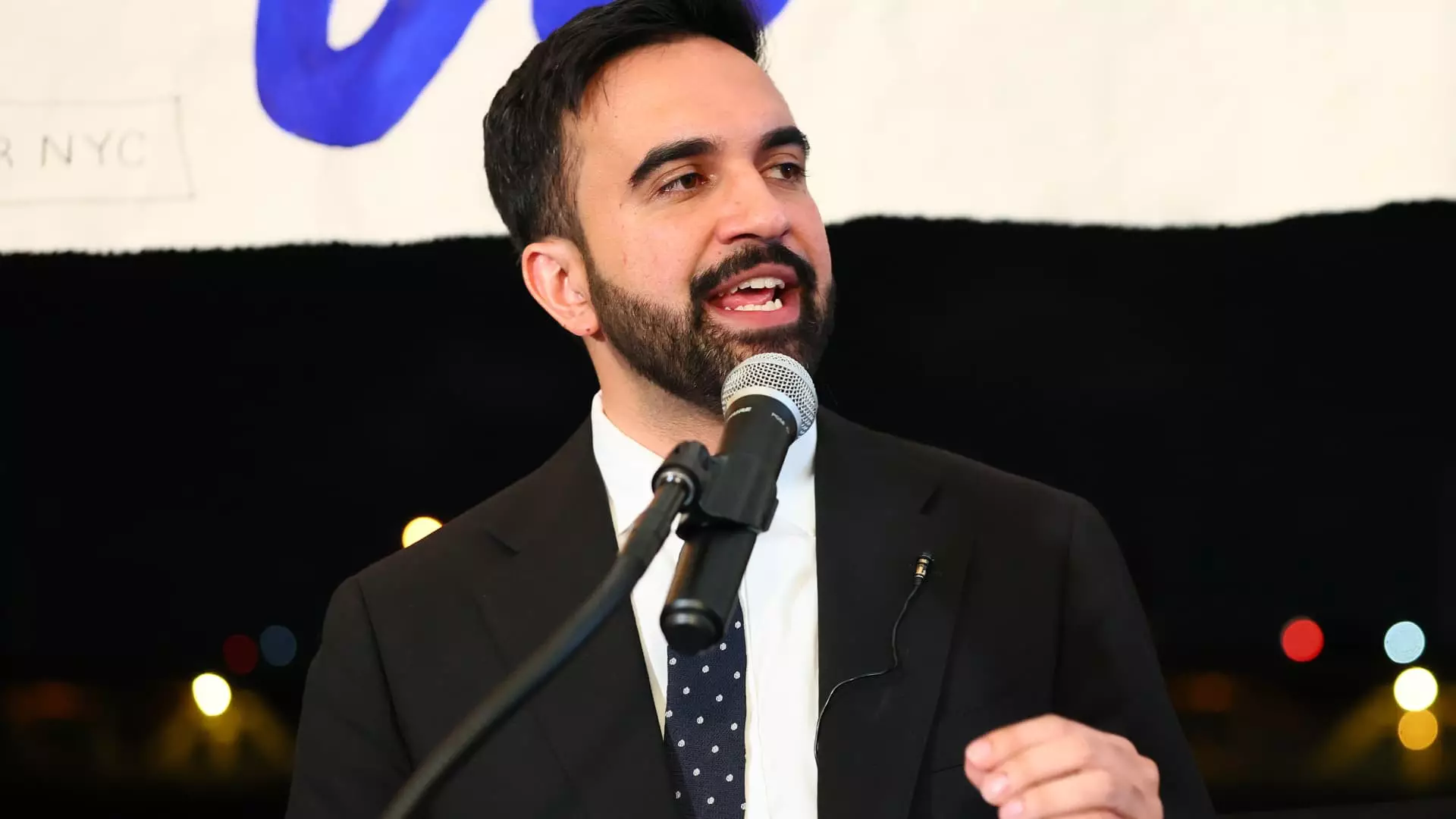The scene at Flagstar bank on Wednesday was nothing short of chaotic as shares took a 6% nosedive. The catalyst? The anticipated mayoral victory of Zohran Mamdani in New York City’s Democratic primary. For investors, this was no mere coincidence; it was a harbinger of looming regulatory upheaval potentially poised to reshape the landscape of New York’s real estate market and, consequently, the financial stability of region-dependent banks like Flagstar. The rebranding of New York Community Bancorp to Flagstar has not been without its challenges, especially as it wrestles with the fallout from 2024’s languishing real estate sector.
Former Treasury Secretary Steven Mnuchin’s $1 billion investment in March was supposed to buoy Flagstar’s fortunes, but that veneer of stability is rapidly eroding amid the specter of a rent freeze championed by Mamdani, who promises to hold down the fort on rental increases for stabilized units. This act of political bravado is enticing to many but poses severe implications for the bank, which has a significant multi-family loan portfolio tied to the fate of these rental properties.
A Rent Freeze—a Doubly Edged Sword
What seems like a populist dream for struggling renters could become a financial nightmare for homeowners and investors alike. Analysts at Deutsche Bank and Morgan Stanley are running the numbers, estimating that Flagstar’s exposure to the multifamily rental sector falls between $11 billion and $18 billion. Frequently, analysts take pains to downplay the immediate risks, suggesting that a short-term rent freeze is “manageable.” However, that comfort comes with caveats which may amplify long-term vulnerabilities.
The notion that a transient halt on rent hikes won’t unsettle the bank’s profit margins is overly optimistic. As rent guidelines already lag behind the pace of inflation, the financial health of multi-family properties will inevitably suffer, leading to increased loan defaults that could pile up on Flagstar’s balance sheet. Investors must question whether they can afford to remain complacent in the face of such challenging dynamics.
Corporate Taxation and Economic Stagnation
Mamdani’s advocacy for a higher corporate tax rate signals a further tightening of an already restrictive economic environment. While he may not have complete control over tax legislation, his position undoubtedly influences the public narrative surrounding fiscal policy in New York. Underlining this push for increased taxation, the city risks stifling entrepreneurship and investment, a lesson that policymakers across the political spectrum often ignore at their own peril.
In stark contrast, sensible fiscal policies typically encourage a thriving economy. The center-right liberal perspective advocates for a balanced tax strategy that facilitates growth while ensuring equitable contributions from corporations. More tax is often synonymous with less investment, and that’s an economic truth that has proven itself repeatedly in various contexts.
The Broader Implications for Real Estate
Additionally, Mamdani’s stance isn’t confined to residential property; it extends to the commercial arena as well, with companies like SL Green Realty and Vornado Realty Trust feeling the financial repercussions of his policies. A ripple effect is decisively setting in, risking a larger downturn in real estate stocks dependent on New York City’s volatile market. Investors are left grappling with uncertainty, balancing short-term outcomes against long-term implications.
As backlash against rising rents, fueled by Mamdani’s promises, reverberates through the streets of New York, there’s a real risk that the symmetry of markets will be disturbed. While rent freezes may pop up as a temporary salve for tenants, the fallout for the property sector could culminate in a far greater financial crisis than any momentary lease concerns.
The Political Theatre of Ranked Choice Voting
Lastly, while Mamdani’s lead in the Democratic primary seems secure, the intricacies of ranked choice voting add another dimension of unpredictability to the narrative. His eventual candidacy hinges on surpassing the 50% threshold in subsequent counting, leaving room for uncertainty. The idea that this electoral reform brings more democratic participation is enticing, but it also complicates the political landscape, emphasizing the stakes involved for all candidates, including incumbents and independent challengers.
The power play unfolding in New York City is indicative of broader national trends—uncontested local elections can have far-reaching implications for state policies and financial institutions. Investors and citizens alike need to wake up to this reality; ignoring such signals may only compound the economic plight faced by so many.
In a condensed yet tumultuous cycle, the implications of Zohran Mamdani’s reign and the vulnerability of institutions like Flagstar are palpable—the stakes have never been this high.

